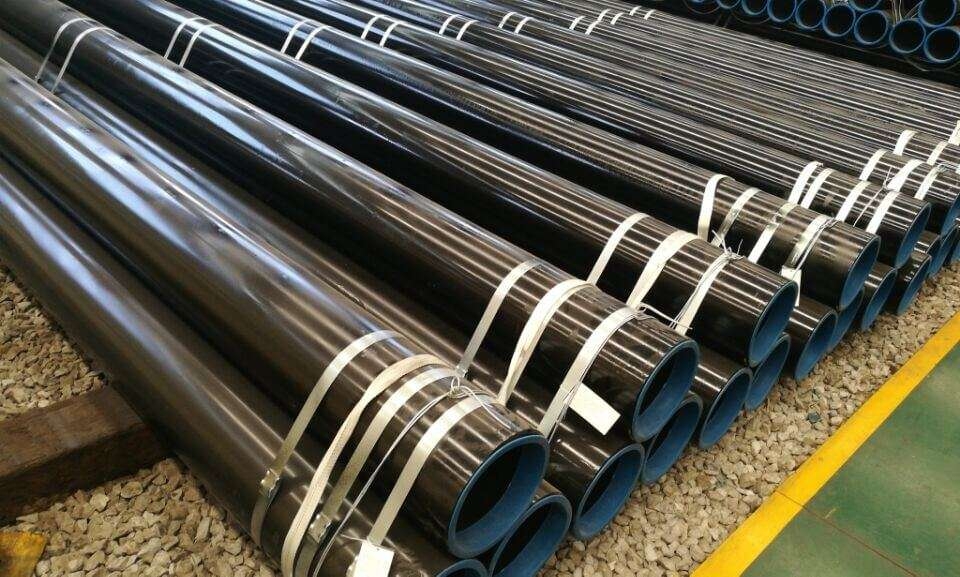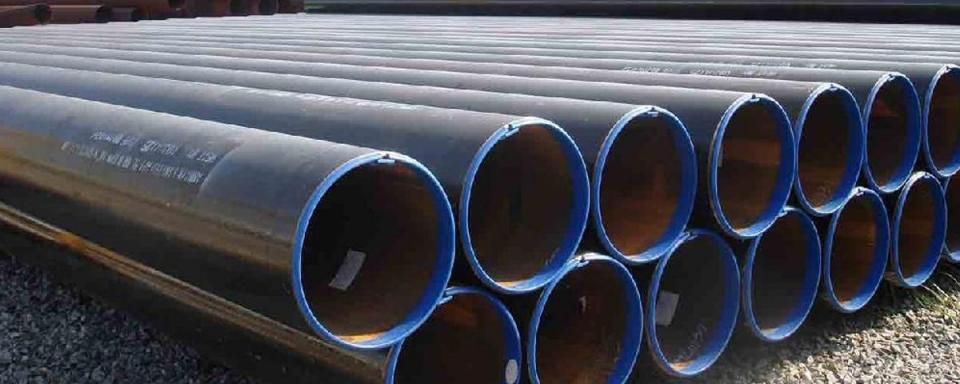API 5L Pipeline Standards: Key Requirements and Industry Impact
The API 5L pipeline standards are essential guidelines for the oil and gas industry, ensuring the safety, reliability, and efficiency of pipelines. These standards cover the design, manufacturing, and testing of steel pipes used in transporting oil and gas. Cangzhou Shenlong exemplifies adherence to these standards with its own experimental testing center and CNAS Laboratory Accreditation Certificate. We maintain strict quality control through rigorous inspections at multiple production stages. Internationally recognized certifications like ISO, CE, and LR, along with support for third-party testing from agencies like SGS and BV, further underscore our commitment to quality and reliability.

API 5L Standards Overview
Definition and Purpose of API 5L Standards
API 5L standards, established by the American Petroleum Institute (API), provide essential guidelines for manufacturing and testing steel pipes in the oil and gas industry. These standards ensure pipelines are safe, reliable, and efficient, crucial for transporting oil, gas, and other fluids. Compliance with API 5L guarantees that pipes meet required mechanical and chemical properties, preventing failures and ensuring seamless operations.
Evolution and Development of API 5L Standards Over Time
Since their inception, API 5L standards have evolved to address increasing complexities and technological advancements in the oil and gas sector. Initially focusing on basic quality requirements, these standards have expanded to include stringent criteria for materials, manufacturing processes, and inspection methods. Continuous updates reflect industry best practices and technological innovations, keeping the standards relevant and effective in meeting modern demands.
Key Organizations Involved in Setting and Updating the Standards
The development and maintenance of API 5L standards involve several key entities. The American Petroleum Institute (API) plays a central role in establishing these guidelines. Additionally, stakeholders such as pipeline manufacturers, oil and gas companies, and regulatory agencies contribute to standard development. Collaborative efforts ensure practical insights are incorporated, addressing real-world challenges and maintaining high safety and reliability standards.
Key Requirements of API 5L Standards
Pipe Manufacturing and Material Requirements
API 5L standards specify detailed requirements for manufacturing and material properties of steel pipes. These guidelines ensure pipes are made from high-quality steel with specific grades and compositions to withstand diverse environmental and operational stresses. Strict adherence to manufacturing processes ensures consistency and reliability, including rigorous controls over chemical composition and mechanical properties.
Mechanical Properties and Chemical Composition
The mechanical properties and chemical composition of steel used in API 5L pipes are critical for performance. Standards define acceptable ranges for elements like carbon, manganese, and silicon to ensure pipes possess necessary strength, ductility, and toughness. These properties are vital for withstanding internal pressures and external environmental conditions, ensuring pipeline longevity and safety.
Testing and Inspection Procedures
API 5L standards mandate comprehensive testing and inspection procedures to verify pipe quality and integrity. These include non-destructive methods such as ultrasonic testing and radiographic inspection to detect internal or surface defects. Hydrostatic testing ensures pipes withstand operational pressures they will encounter. Regular inspections throughout manufacturing identify and address potential issues early, maintaining high-quality standards.
Welding Procedures and Requirements
Welding is critical in pipeline construction, and API 5L standards provide detailed guidelines for procedures and requirements. This includes specifications for welding techniques, filler materials, and qualifications of welding personnel. Proper welding ensures joints are as strong as pipes themselves, preventing leaks and failures. Adherence to standards ensures consistent, reliable welding processes, contributing to overall pipeline integrity.
Commitment to Quality: Cangzhou Shenlong
Cangzhou Shenlong demonstrates a strong commitment to API 5L standards through its advanced experimental testing center and CNAS Laboratory Accreditation Certificate. The company upholds stringent quality control, including dual-stage inspections during production and full inspections of finished products. With internationally recognized certifications like ISO, CE, and LR, and support for third-party testing by SGS and BV, Cangzhou Shenlong ensures pipelines meet the highest standards of safety, reliability, and efficiency.
Industry Applications and Compliance
Importance of API 5L Standards Compliance in the Oil and Gas Industry
Compliance with API 5L standards is essential in the oil and gas sector, where pipeline integrity and reliability are paramount. These standards ensure pipelines are fabricated using top-grade materials and adhere to rigorous manufacturing and testing protocols. By adhering to API 5L guidelines, companies mitigate the risk of pipeline failures that could lead to severe environmental and economic consequences. Compliance not only safeguards the transport of oil and gas but also protects investments and enhances the industry’s standing for reliability.
Impact on Pipeline Design, Construction, and Operation
API 5L standards profoundly influence pipeline design, construction, and operation. They prescribe detailed specifications for pipe grades, dimensions, and materials, providing engineers with guidelines to create pipelines capable of withstanding diverse environmental and operational pressures. During construction, adherence to these standards ensures that welding, inspection, and testing procedures meet stringent quality benchmarks. In operation, pipelines built to API 5L standards exhibit superior performance and durability, reducing maintenance costs and downtime while ensuring safe and efficient resource transport.
Environmental and Safety Considerations
Environmental Regulations and Compliance with API 5L Standards
Adherence to environmental regulations and standards like API 5L is critical in mitigating the impact of oil and gas operations on the environment. API 5L standards are aligned with environmental laws, ensuring pipelines are constructed and operated to minimize environmental disruption. This includes employing materials and processes that lower emissions and prevent leaks, thereby safeguarding ecosystems and communities. Compliance demonstrates a commitment to environmental stewardship and regulatory adherence, crucial for sustainable industry practices.
Safety Measures and Practices Enforced by API 5L Standards
Safety is fundamental to API 5L standards, which mandate rigorous safety measures throughout the pipeline lifecycle. These include comprehensive testing procedures such as hydrostatic and non-destructive testing to detect and rectify potential defects prior to pipeline commissioning. The standards also specify stringent requirements for welding, material selection, and quality control, ensuring pipelines are resilient against operational stresses and environmental conditions. By enforcing these safety protocols, API 5L standards help prevent accidents, protecting both workers and the environment.
Contributions of API 5L Standards to Environmental Impact Reduction and Pipeline Safety Enhancement
API 5L standards play a pivotal role in reducing environmental impact and enhancing pipeline safety through stringent quality and safety criteria. The use of high-quality materials and construction practices minimizes the risk of leaks and spills, preserving soil and water resources. Additionally, regular inspections and maintenance mandated by the standards promptly identify and address potential issues, thereby preventing accidents and environmental harm. Overall, API 5L standards promote a culture of safety and environmental responsibility across the oil and gas industry.
Future Trends and Developments
Emerging Technologies Shaping API 5L Standards
Emerging technologies are set to revolutionize API 5L standards by enhancing pipeline reliability and efficiency. Innovations like advanced materials, smart sensors, and automated inspection systems are poised to improve pipeline durability and safety. For example, the adoption of corrosion-resistant alloys and real-time monitoring systems can bolster pipeline integrity significantly. As these technologies become mainstream, API 5L standards are likely to evolve to incorporate new best practices and performance metrics, ensuring pipelines remain at the forefront of technological advancement.
Potential Revisions and Updates to API 5L Standards
The dynamic nature of the oil and gas industry necessitates regular updates to API 5L standards. Potential revisions may introduce stricter requirements for environmental protection, enhanced safety protocols, and the adoption of cutting-edge materials and technologies. These updates aim to address emerging challenges and integrate advancements in pipeline engineering and technology. By staying abreast of industry trends, API 5L standards ensure pipelines are designed and operated to the highest standards of safety and reliability.
Forecast for Global Adoption and Implementation of API 5L Standards
The global adoption of API 5L standards is expected to expand as the oil and gas industry prioritizes safety, reliability, and environmental sustainability. Developing regions with burgeoning oil and gas infrastructure are likely to embrace these standards to ensure robust pipeline construction and operation. Moreover, as global regulatory frameworks become more stringent, adherence to API 5L standards will become imperative for compliance. This trend will drive widespread adoption and continual enhancement of pipeline practices worldwide.
CONCLUSION
API 5L pipeline standards play a crucial role in safeguarding the oil and gas industry by ensuring pipeline safety, reliability, and efficiency. These standards provide comprehensive guidelines for pipe manufacturing, material properties, and testing procedures, which are pivotal in shaping pipeline design, construction, and operation. Adherence to API 5L standards not only reduces the risk of pipeline failures but also promotes compliance with environmental and safety regulations. As the industry advances, these standards will continue to integrate new technologies and best practices to keep pipelines at the forefront of reliability and performance. Cangzhou Shenlong's dedication to API 5L standards underscores the significance of stringent quality control and certification in upholding industry benchmarks. Globally, the adoption of API 5L standards will drive continuous enhancements in pipeline practices, fostering improved safety and environmental stewardship on a global scale.






